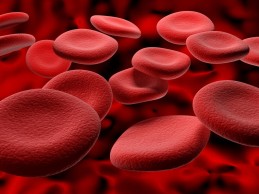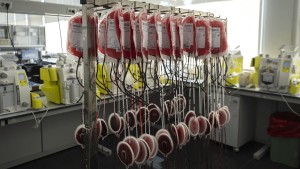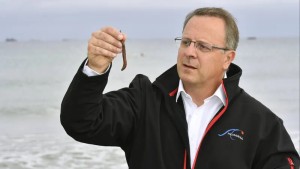The latest in doping comes from a marine worm, is undetectable and could be in the peloton for a couple of years
Once again, the suspicion of doping is hanging over cycling after French newspaper l'Equipe published a report about the incredible performance benefits that could be achieved with the use of haemoglobin from the marine sandworm. A doping method that could have been circulating in the peloton for years.

Blood doping finds a loophole in the use of sandworm haemoglobin
If any sport will never shake off the stigma of doping, it is cycling. After a dark past of dubious practices, which reached its peak during the first decade of this century, everything seemed to indicate that the use of banned substances had been stopped and that the professionals had definitively renounced this way of improving their performance.
However, every now and then news and rumours appear in a constant background noise that does not quite give cycling the credibility it needs to shake off its past. The latest of these news is the publication by the French newspaper l'Equipe of a report pointing to the properties of the haemoglobin of marine sandworms, a common type of worms that can be found in sandy areas and are commonly used by fishermen as bait.
RECOMENDADO

Alcoholic beverages with the fewest calories

What would you do if you won the lottery? This cyclist bought himself a €20,000 bike

Tips for cycling in the rain

25 cycling gifts ideas to get it right

When do helmets have to be changed? Do they have an expiration date?

The best apps for cycling and mountain biking

In 2007, French researcher Franck Zal discovered the properties of the haemoglobin present in the red blood cells of these worms. We remind you that haemoglobin is a protein present in red blood cells that is responsible for oxygen binding to them, thus allowing it to be transported to the muscles. During the years of blood doping based on transfusions, the use of EPO, etc., the objective was precisely that, to improve the capacity of the cyclist's organism to carry oxygen to the muscles, something that is nowadays largely made up for by the high altitude concentrations that practically all cyclists carry out weeks before their big objectives.
According to the research of Dr Zal, who patented his discovery and created the company Hemarina to market products based on this haemoglobin from marine sandworms, the red blood cells of these worms are capable of carrying 40 times more oxygen than humans because they are much smaller and can circulate much more easily.

In addition, they are compatible with all blood groups and do not cause variations in haematocrit, as is the case if human haemoglobin is provided through transfusions or its usual substitute of bovine origin. This last aspect is one of the main parameters controlled in the biological passport, a profile of blood values that every professional cyclist must have on the basis of the anti-doping controls carried out. An unjustified variation in these parameters is a sufficient signal to put a cyclist under suspicion of doping and even, in clearly evident cases, to proceed to a sanction.
Undoubtedly, the biological passport has been the UCI's great weapon to stop doping, but discoveries such as that of the haemoglobin in these marine worms are now making its effectiveness questionable. Besides, this substance has another advantage as a doping product: its half-life in the organism is only a few hours, which complicates its detection, although it is a substance that can be found in analyses.

Dr Zal himself claimed that a well-known cyclist had contacted him about the availability of this substance, which, by the way, has not yet been approved by the European Union for use in humans.
This should be a warning signal for the UCI and WADA not to lower their guard in the fight against doping and to redouble their efforts in carrying out surprise tests as well as continuing to work on further improving the accuracy of the biological passport which, given what has been seen, could already be circulating in the peloton without them even knowing it because, although the reanalysis of hundreds of tests for this type of haemoglobin have not shown its presence, the short duration in the cyclist's body means that nothing can be ruled out.